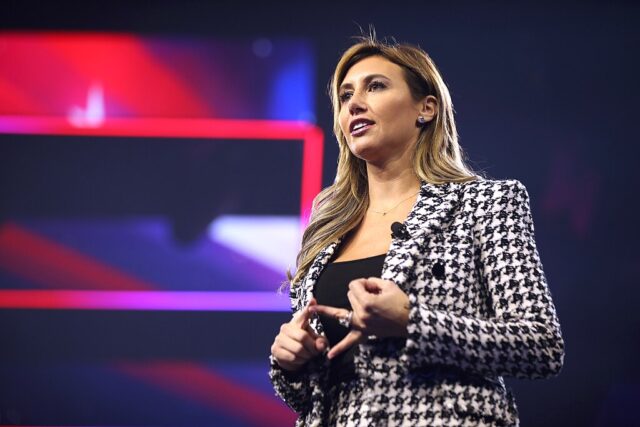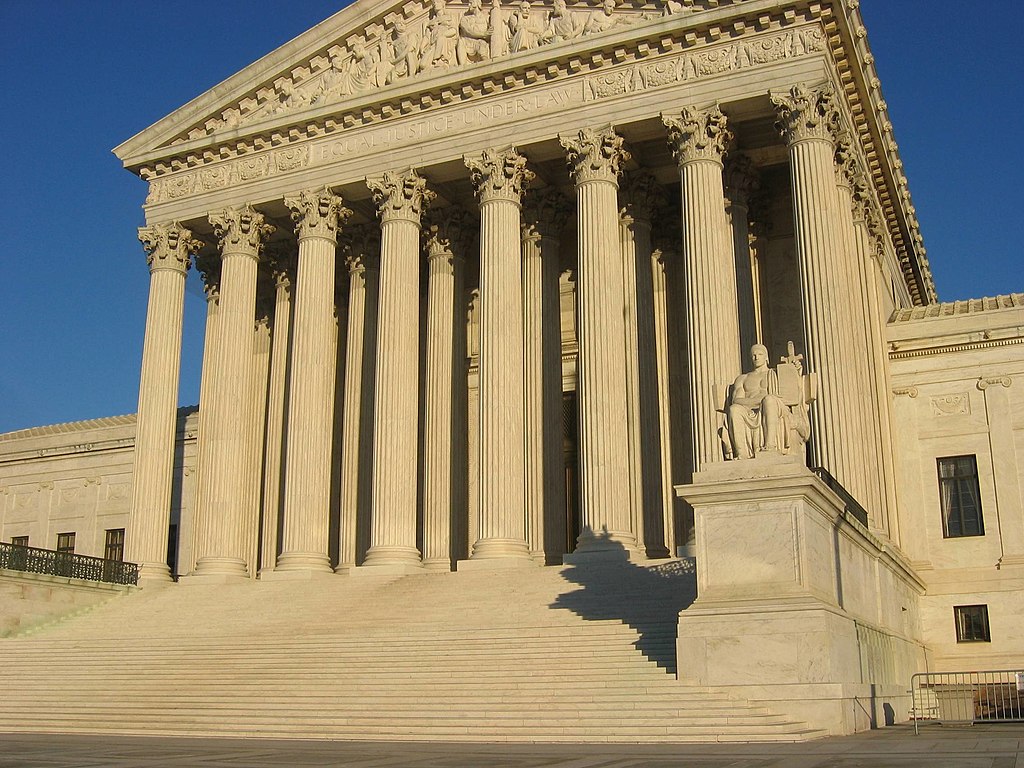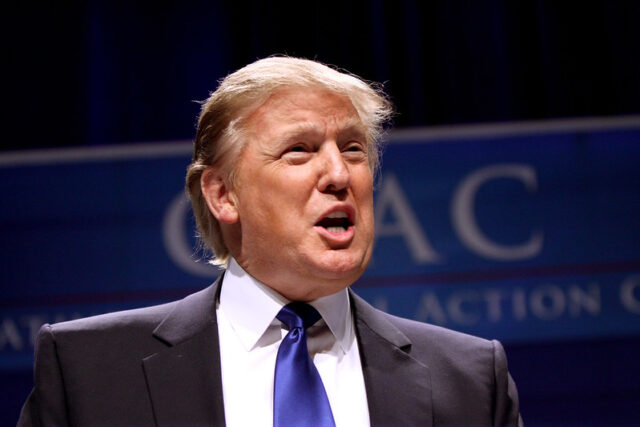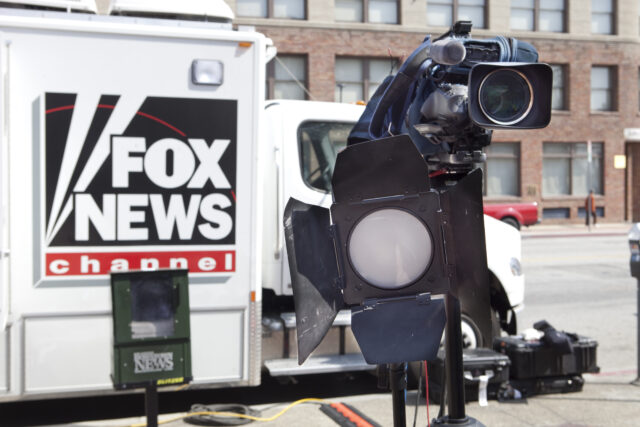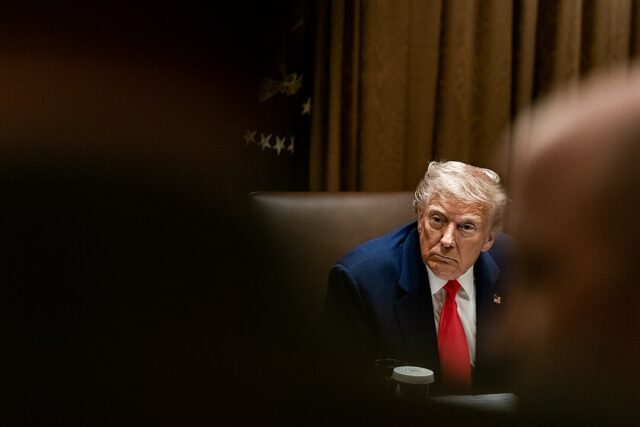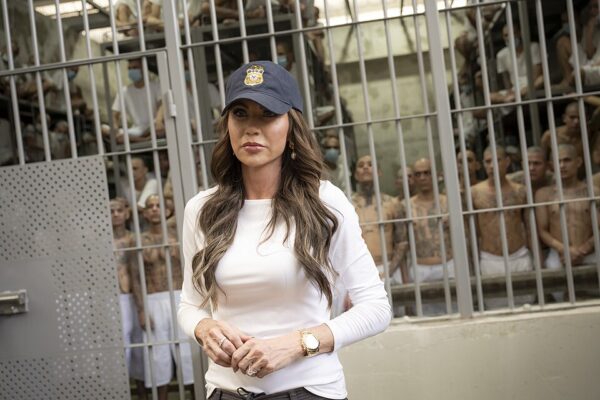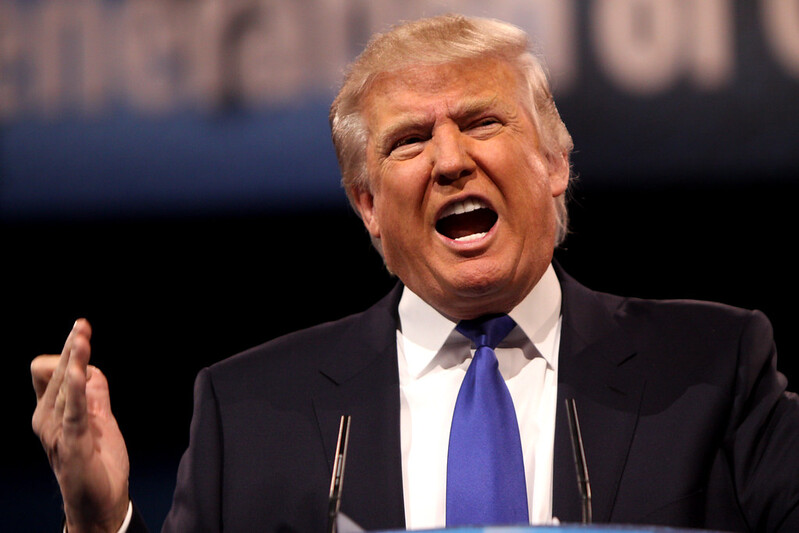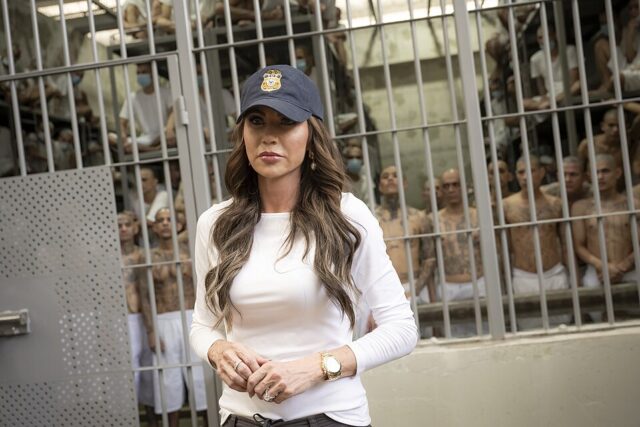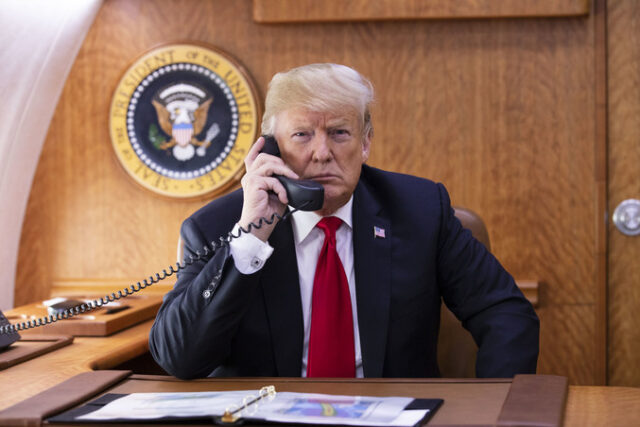Trump Warns Massive Armada Has Been Sent To Iran

Former President Donald Trump confirmed Thursday that the USS Abraham Lincoln aircraft carrier and its accompanying strike group are being deployed to the Middle East as a direct signal to the Iranian regime, saying the United States is prepared to take decisive action if Tehran does not negotiate.
In a series of posts on his Truth Social platform, Trump described a “massive Armada” heading toward Iran and warned that time is running out for the Islamic Republic to return to the negotiating table on terms that would bar it from obtaining nuclear weapons. “It is moving quickly, with great power, enthusiasm, and purpose. It is a larger fleet, headed by the great Aircraft Carrier Abraham Lincoln, than that sent to Venezuela,” Trump wrote. “Like with Venezuela, it is ready, willing, and able to rapidly fulfill its mission, with speed and violence, if necessary.”
“Hopefully Iran will quickly ‘Come to the Table’ and negotiate a fair and equitable deal — NO NUCLEAR WEAPONS — one that is good for all parties,” Trump added. “Time is running out, it is truly of the essence! As I told Iran once before, MAKE A DEAL! They didn’t, and there was ‘Operation Midnight Hammer,’ a major destruction of Iran. The next attack will be far worse! Don’t make that happen again.”
The Navy’s deployment — which includes the Abraham Lincoln and supporting warships — is part of an expanding U.S. military presence in the region intended to deter Iranian aggression and signal Washington’s readiness to act if necessary. According to U.S. military statements, the carrier strike group has entered the Middle East under U.S. Central Command and is positioned to promote regional security and stability amid heightened tensions.
Trump has also insisted that there is willingness on the Iranian side to discuss a deal. In a Monday interview with Axios, he said Tehran had reached out “on numerous occasions” and “want[s] to make a deal.” “They want to make a deal. I know so. They called on numerous occasions. They want to talk,” he told the outlet.
But U.S. officials cited by Axios said that any agreement would require Iran to remove all enriched uranium, cap its long-range missile stockpile, curb support for proxy forces, and cease independent uranium enrichment — conditions Iranian leaders have not accepted.
Iran’s mission to the United Nations responded to Trump’s posts within hours, warning that Tehran would defend itself if attacked. “Last time the U.S. blundered into wars in Afghanistan and Iraq, it squandered over $7 trillion and lost more than 7,000 American lives. Iran stands ready for dialogue based on mutual respect and interests — BUT IF PUSHED, IT WILL DEFEND ITSELF AND RESPOND LIKE NEVER BEFORE!” the statement read.
The military buildup comes amid widespread unrest inside Iran following protests that began in late December. Activist groups have reported thousands of deaths in the crackdown, and recent coverage says Iran’s Supreme Leader Ayatollah Ali Khamenei has been sheltering in a fortified underground facility as tensions escalate.
Trump is expected to hold further consultations in coming days, and White House officials continue to say that military action remains on the table if diplomacy fails to produce results acceptable to U.S. interests.


